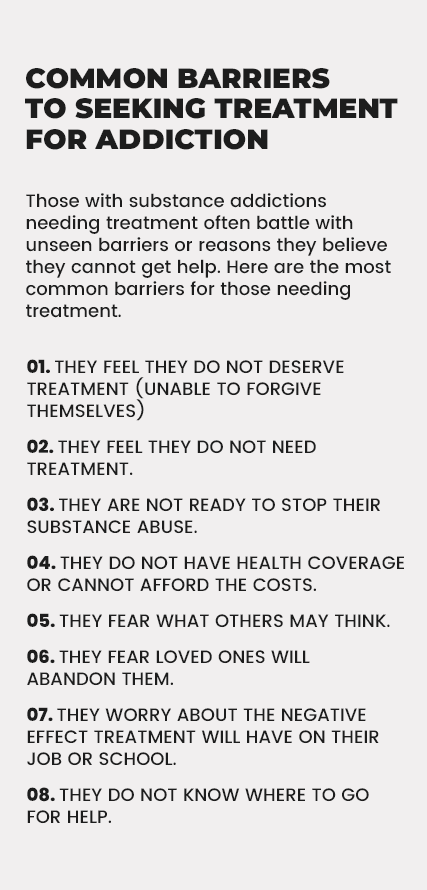FORGIVENESS IN ADDICTION RECOVERY
The idea of forgiveness can stir up a lot of emotions in a person but for someone who is struggling with an addiction, forgiveness can be a heavy topic. If you struggle with substance abuse and are seeking help with addiction recovery, you must come to the realization that forgiveness is a key step in the recovery process. You must learn to forgive yourself, forgive others, and seek forgiveness from those you have wronged to be able to move forward in your treatment.
Forgiveness is an effort made to let go of resentment, anger, and pain from someone who has hurt or wronged you. These emotions put your stress levels on high alert and that can lead to health problems such as heart attacks, autoimmune diseases, and higher levels of anxiety and depression. Letting go of these emotions allows a victim to feel free and move on with their addiction recovery in a more peaceful manner.
At our Orange County rehab centers, many of our clients experience dealing with the difficult emotions of guilt and shame that come with addiction. This guilt can make you believe that you do not deserve any good in life, and shame makes you want to push the wrongdoing away like it never happened.
These negative emotions hinder the recovery process, and while it may be hard to forget what has happened in the past, forgiving yourself allows for a smoother recovery process.
Get Recovery Counseling for Forgiveness
SELF-FORGIVENESS IN RECOVERY
“Forgive yourself. The supreme act of forgiveness is when you can forgive yourself for all the wounds you’ve created in your own life. Forgiveness is an act of self-love. When you forgive yourself, self-acceptance begins and self-love grows.” — Miguel Angel Ruiz
Self forgiveness is giving yourself the strength and courage to beat your addiction. While it isn’t an easy task, these four actions can help guide you:
-
- Accept responsibility – accept what you have done and be willing to show compassion to yourself.
- Express remorse – when you accept responsibility for your actions, guilt may still remain; but those feelings are a good indicator that you are experiencing remorse and that can be a catalyst that leads you into a more positive mindset.
- Repair the damage and restore trust – fix your mistakes and make amends. This helps you feel that you have earned forgiveness.
- Focus on renewal – learning from the process and growing as a person helps you move from the negative feelings and prevents these feelings from returning in the future.
Going through a treatment program for addiction recovery can be hard because the low moments in your life are brought to the surface to process during treatment. It is important to remember that this feeling of guilt that you experience does not make you a bad person and everyone makes mistakes. Forgiving yourself has been shown to improve your physical and mental health and restores a positive image of yourself. Self-compassion brings about higher levels of success, productivity, focus and concentration.
FORGIVING OTHERS
Some victims may ask, “Why do I need to forgive others for my substance abuse disorder?” It can become confusing when you know that you should be the one seeking forgiveness from others, rather than having to forgive someone. Getting to the center of the substance addiction is an important step when working through the stages of a treatment program and that can lead the victim into their past where trauma and abuse may have been prevalent.
The pain you experienced from others in the past brings on a feeling of resentment and that resentment feeds a vicious cycle of falling into addiction. In order to break the cycle, you have to be willing to let go of that resentment you’ve held against those who have hurt you.

SEEKING FORGIVENESS FROM OTHERS
As a victim of addiction, you may realize that you have hurt others along the way. It is important to make amends with those friends and family members that have been hurt by your behavior and actions because it contributes to the success of your addiction recovery.
First, let your loved ones know that you are accepting responsibility for what has been done and you want their forgiveness. Most importantly, be ready to listen to what your loved ones have to say, whether good or bad. Don’t be defensive and try to give explanations for everything they share. They have a right to their feelings just as much as you have a right to yours.
Recognize they may not be ready to forgive you; but knowing you did everything you could helps bring peace to the situation.
Asking for forgiveness from others and yourself is a life-changing step in the addiction recovery process. It becomes the jumping off point for healing and learning how to live a healthy lifestyle.
LETTING GO OF RESENTMENT IN ADDICTION RECOVERY
Letting go of resentments in addiction recovery is a crucial part of the forgiveness process.
Often, our mental health and thought patterns heavily influence substance abuse, even if we don’t realize it. Although it can be difficult, sometimes letting go of anger when someone wrongs you can provide a sense of relief and freedom from the weight of resentment you’ve had to carry around.
Some people struggle with letting go of resentment in addiction recovery when the program begins to address it. However, it’s important to note that those feelings are valid and the suffering you feel because of someone else’s actions is no small thing to be glossed over or forgotten. However, forgiveness is for you, and your own wellbeing.
The fact is, resentment is a heavy burden to carry around. In talk therapy during addiction treatment, you’ll be able to work through these feelings and create new, more positive thought processes around the situation which can help address whether substance abuse is happening because you (consciously or unconsciously) need to suppress heavy or difficult feelings.
Getting to the root of these issues with a compassionate, licensed therapist can be the reason you’re able to get and stay sober long term, and potentially help you either mend relationships or give you the strength to move forward from them.
GET EFFECTIVE ADDICTION TREATMENT AT GRATITUDE LODGE
If you are seeking a California rehab center that can help guide you through the process of forgiveness, we here at Gratitude Lodge are ready to help you find that peace with one of our many treatment programs. Our luxurious addiction treatment centers in Long Beach and Newport Beach are the perfect settings for addiction recovery, and are staffed with credentialed and experienced team members who can help you.
For those who are dependent on drugs or alcohol, we offer supervised medical detoxification. Access FDA-approved medications and continuous care to streamline the intensity of the alcohol withdrawal process. After a week, move into ongoing inpatient treatment at one of our luxury beachside rehab centers. Here, you can expect a personalized mix of these therapies:
- Individual counseling
- Group therapy
- Psychotherapies
- MAT (medication-assisted treatment)
- Family therapy
- Holistic therapy
- Aftercare
When you are ready to live unconstrained by addiction to antidepressants like Prozac, call 800-994-2184 for immediate assistance.
Forgiveness and Addiction FAQs
Though it might feel challenging, releasing the emotional weight of past events is crucial for the journey to recovery. In overcoming addiction, the initial step is to forgive yourself, which doesn’t entail forgetting but rather learning from mistakes and applying that wisdom to progress in life.
Responsibility: Embrace the past and be kind to yourself. Remorse: Use guilt and regret as a path to positive change. Restoration: Seek reconciliation with those you forgive, including yourself. Renewal: Learn from the experience and evolve as an individual.
The power of forgiveness in recovery lies in its ability to free individuals from the burden of their past, enabling them to heal emotionally and move forward. By letting go of resentments and offering forgiveness, individuals can experience greater peace of mind and create a positive foundation for their journey to recovery.






























